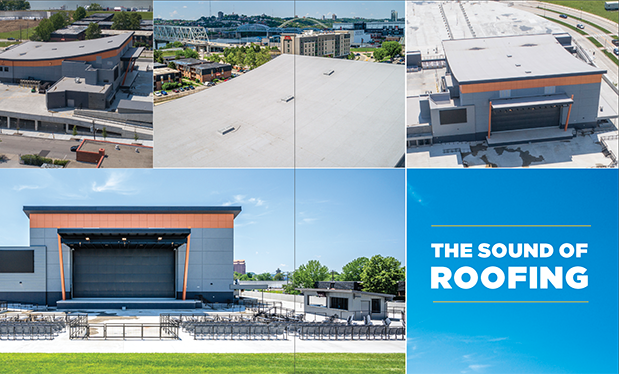Editor’s note: This article is for general educational purposes only and does not constitute legal advice.
To say the past year and a half has been “a challenging time” for federal contractors trying to complete projects on schedule would be an extraordinary understatement. During the height of the COVID-19 pandemic, factories shut down, transportation routes closed and material distribution was disrupted throughout the world. This chaos upended everyone’s standard operating procedures, and contractors still are trying to recover.
If your company holds federal contracts and you are experiencing material price increases and delays, you can look to Federal Acquisition Regulation clauses for relief. The language of a few standard FAR clauses—which make up Title 48 of the Code of Federal Regulations—allows for schedule revisions and price adjustments to accommodate circumstances beyond your control. These clauses address force majeure events, which many courts deem as valid during the pandemic.
Price adjustments
You already have noticed increased prices at supermarkets and gas stations. The same likely is true for your materials and labor. So if you have a fixed-price contract, you may be eligible for price adjustments in some circumstances. The contracting officer may select a fixed-price contract with economic price adjustments built into the contract. These types of contracts only can be used in certain circumstances where the contract amount or incentive is based solely on factors other than cost.
Of particular interest is 48 CFR § 16.203-2—Application, which states the following: “A fixed-price contract with economic price adjustment may be used when (i) there is serious doubt concerning the stability of market or labor conditions that will exist during an extended period of contract performance, and (ii) contingencies that would otherwise be included in the contract price can be identified and covered separately in the contract. Price adjustments based on established prices should normally be restricted to industry-wide contingencies. Price adjustments based on labor and material costs should be limited to contingencies beyond the contractor’s control. For use of economic price adjustment in sealed bid contracts, see 14.408-4.”
This type of provision gives you the opportunity to make price adjustments if labor and material expenses are affected throughout the industry and no fault of your own. Although this language may help, it only applies to new contracts where this contractual vehicle is selected and does not necessarily provide relief in a typical fixed-price contract with no price adjustment opportunity.
To protect yourself from unforeseeable price increases during a project, 48 CFR § 52.249-8—Default provides a fixed-price supply and service clause a contracting officer may add to your contract. It includes the following language: “(c) Except for defaults of subcontractors at any tier, the Contractor shall not be liable for any excess costs if the failure to perform the contract arises from causes beyond the control and without the fault or negligence of the Contractor. Examples of such causes include (1) acts of God or of the public enemy, (2) acts of the Government in either its sovereign or contractual capacity, (3) fires, (4) floods, (5) epidemics, (6) quarantine restrictions, (7) strikes, (8) freight embargoes, and (9) unusually severe weather. In each instance the failure to perform must be beyond the control and without the fault or negligence of the Contractor.
“(d) If the failure to perform is caused by the default of a subcontractor at any tier, and if the cause of the default is beyond the control of both the Contractor and subcontractor, and without the fault or negligence of either, the Contractor shall not be liable for any excess costs for failure to perform, unless the subcontracted supplies or services were obtainable from other sources in sufficient time for the Contractor to meet the required delivery schedule.”
This language potentially gives you an opportunity to seek compensation for additional costs and/or delays resulting from the materials issue. In particular, the argument that the materials in question were not obtainable from other sources in ample time for you to meet the schedule tracks the language in Subsection d.
For federal contracts, FAR 16.203-4 and 52.216-4 allow for economic price adjustments when unit prices stipulated in the contract increase or decrease. Usually, the applicable clauses are allowed only in specific situations, such as for work lasting a year or longer. The price change is applicable only for increases of at least 3% and may be limited to a maximum of 10%.
The most pertinent section of FAR 16.203-4 reads as follows: “(c) Adjustments based on actual cost of labor or material. (1) The contracting officer shall, when contracting by negotiation, insert a clause that is substantially the same as the clause at 52.216-4, Economic Price Adjustment – Labor and Material, or an agency-prescribed clause as authorized in subparagraph (c)(2) of this section, in solicitations and contracts when all of the following conditions apply:
- (i) A fixed-price contract is contemplated.
- (ii) There is no major element of design engineering or development work involved.
- (iii) One or more identifiable labor or material cost factors are subject to change.
- (iv) The contracting officer has made the determination specified in 16.203-3.”
FAR 16.203-3 stipulates: “A fixed-price contract with economic price adjustment shall not be used unless the contracting officer determines that it is necessary either to protect the contractor and the Government against significant fluctuations in labor or material costs or to provide for contract price adjustment in the event of changes in the contractor’s established prices.”
You should make sure to address the issue of material volatility with the contracting officer as soon as possible to determine how to adequately deal with supply chain disruptions. Although pricing remains a concern, material lead time and delays also have plagued federal contractors.
Material delays
Contractors are reporting wide-ranging supply shortages, which are affecting roofing as well as other industries. In typical circumstances, contractors would be responsible for the inability to secure common materials. But the circumstances surrounding the pandemic are anything but typical. Worldwide supply chain upheaval is affecting every industry, so in many instances, delays can fall under the excusable delay category.
To protect yourself from delays you cannot control, your contracting officer may include this clause, provided in 48 CFR 52.249-14—Excusable Delays: “(a) Except for defaults of subcontractors at any tier, the Contractor shall not be in default because of any failure to perform this contract under its terms if the failure arises from causes beyond the control and without the fault or negligence of the Contractor. Examples of these causes are (1) acts of God or of the public enemy, (2) acts of the Government in either its sovereign or contractual capacity, (3) fires, (4) floods, (5) epidemics, (6) quarantine restrictions, (7) strikes, (8) freight embargoes, and (9) unusually severe weather. In each instance, the failure to perform must be beyond the control and without the fault or negligence of the Contractor. Default includes failure to make progress in the work so as to endanger performance.
“(b) If the failure to perform is caused by the failure of a subcontractor at any tier to perform or make progress, and if the cause of the failure was beyond the control of both the Contractor and subcontractor, and without the fault or negligence of either, the Contractor shall not be deemed to be in default, unless -
- (1) The subcontracted supplies or services were obtainable from other sources.
- (2) The Contracting Officer ordered the Contractor in writing to purchase these supplies or services from the other source; and
- (3) The Contractor failed to comply reasonably with this order.
“(c) Upon request of the Contractor, the Contracting Officer shall ascertain the facts and extent of the failure. If the Contracting Officer determines that any failure to perform results from one or more of the causes above, the delivery schedule shall be revised, subject to the rights of the Government under the termination clause of this contract.”
These provisions provide you with an argument that increased lead times are a result of excusable delay.
Contract review
Before performing work on a project, you must scrutinize the contract terms. For instance, bid documents might contain a “no damages for delay” clause that will limit or bar your entitlement to additional compensation for delay-related claims.
The clause is designed to protect the owner from claims made by contractors, as well as contractors from claims made by subcontractors. It prohibits contractors or subcontractors from submitting delay claims to recover financial losses caused by construction delays. Such delays may be caused by several factors, including those controlled by the owner or contractor.
One example of such a provision is: “The Contractor shall not make a claim for delay damages in the performance of this contract resulting from any act or omission to act of the Owner or its representatives and agrees that any such claim shall be fully compensated with an extension of time to complete the work as provided herein as the sole and exclusive remedy.”
If you are aware of such a provision before entering into a contract or performing work, you can understand the effects these provisions may have on your work and adjust your bids or work accordingly.
Final advice
After a contract is executed, relying on existing regulations or contract provisions may provide you with a legal claim or a Request for Equitable Adjustment, but often negotiation and creativity are required to seek relief from the current supply chain crisis.
TRENT COTNEY is CEO of Cotney Attorneys & Consultants, Tampa, Fla., and NRCA’s general counsel.
FOR AN ARTICLE RELATED TO THIS TOPIC, SEE “LEGAL EASE,” FEBRUARY 2005 ISSUE


